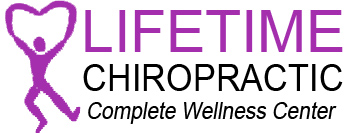 “Where should I go to relieve my neck and low back pain?” A question that is asked far to often.
“Where should I go to relieve my neck and low back pain?” A question that is asked far to often.
When you suffer with neck and low back pain you should consider an evaluation first by a qualified chiropractor. The majority of these spinal complaints are caused by irritation and inflammation of muscles, tendons, and ligaments that not only help create the structure of the spinal column but provide for the full mobility of the spinal vertebrae. By locating regions of your spine where mobility is decreased, your chiropractor is able identify the areas that are in need of treatment. The treatment includes not only restoring mobility to the spinal joints, but through the chiropractic care the neck and back pain are eliminated from source of the problem.
An additional benefit of chiropractic care is the reduction of pressure and irritation on spinal nerves. Irritation and inflammation of spinal soft tissues is not only one cause of the pain but negatively affects the normal function of the spinal nerves. The compression on the delicate spinal nerve strands reduces or may completely inhibit the transmission of information from your brain to the rest of your body. The result may include a wide range of health problems. By addressing the source of many of these problems, chiropractic care helps contribute to your overall health and well-being.
Immediate and Serious Physical Problems
No one wants to constantly worry. We certainly don’t want to visit our chiropractor or family doctor for every ache and pain. But eventually we all experience physical problems and it may be difficult to know how to solve them. Some problems are immediate and serious. If you suddenly experience crushing chest pain and radiating pain down your left arm, possibly with nausea, profuse perspiration, and a feeling of impending doom, you know you have to call “911” immediately. If you awaken in the middle of the night with an intense, deep, sharp pain in your lower right abdomen, accompanied by vomiting and a fever, you also know that you need to go to the Emergency Room right away. In these exceptional cases, however, most people know which steps to take. What should you do when your pain is not clear-cut and dramatic, as it is in a heart attack or acute appendicitis? General guidelines are available which can be applied in many situations.
Overall, pain is a warning sign, but many problems that cause pain can resolve on their own. For example, you may twist an ankle on your daily walk. It may hurt to put weight on that ankle and there may even be a bit of swelling; however within two days your ankle is much better. There was initial pain attributing to a soft tissue injury, possibly involving muscles, tendons, and/or ligaments. However, the injury was not so severe that your body’s ability to self-heal could not manage the situation. In the case of a greater degree of initial pain and more swelling, or if improvement was not being obtained within 48 hours, a visit to your chiropractor would be appropriate. In borderline situations involving musculoskeletal pain, and whether you choose to seek professional advice depends on your intuition and level of pain tolerance. If you think something is “wrong”, regardless of the nature of the injury or the intensity of your pain, you should seek professional assistance.
Obtaining the Expert Information You Need
With some categories of physical problems, making the time to visit your chiropractor is the best course of action. Repetitive episodes of spinal pain should always be evaluated by your chiropractor. A severe headache should probably lead to a chiropractic examination, especially if you’ve never before had the type and intensity of pain that you’re currently experiencing. Persistent radiating pain into an arm or a leg, accompanied by numbness and tingling, can also be evaluated by your chiropractor. Again, if discomfort continues and you can’t clearly explain to yourself why you’re having the pain that you’re having, the best thing to do is to make an appointment to see your doctor, that is, your chiropractor or your family physician. Most importantly you want to obtain expert information and advice, and to receive treatment if needed with the most helpful instructions on how to care for yourself in the coming days, weeks, or months ahead.
For Your Health,
Dr. Patrick Chenoweth
